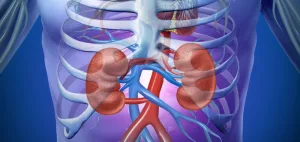As the world continues to grapple with the aftermath of the COVID-19 pandemic, Long COVID has emerged as a complex and often debilitating condition. Among its many symptoms, cognitive dysfunction—commonly referred to as “brain fog”—stands out as a significant challenge for many patients. Recent research sheds light on how Long COVID impacts cognitive abilities and the role physical exercise might play in managing these effects.
Understanding Cognitive Challenges in Long COVID
Long COVID is characterized by persistent symptoms that linger for weeks or months after the acute phase of the infection. Cognitive dysfunction, a hallmark symptom, can manifest as memory lapses, difficulty concentrating, mental fatigue, and slowed information processing. These issues can significantly impact daily life, work, and overall quality of life.
Researchers suggest that these cognitive deficits may stem from a combination of factors, including:
- Inflammation in the brain and body.
- Disrupted blood flow to the brain.
- Residual viral particles or immune response effects.
The Role of Physical Exercise
Physical exercise is often touted as a cornerstone of good health, benefiting both the body and mind. However, its relationship with Long COVID’s cognitive effects is more nuanced. For some patients, moderate exercise can improve symptoms by enhancing blood flow, reducing inflammation, and releasing endorphins that boost mood and cognitive function. Yet, others may experience worsened symptoms due to post-exertional malaise (PEM), a condition where physical or mental exertion leads to a significant energy crash.
Balancing Activity and Rest
To manage Long COVID’s cognitive challenges, experts recommend a personalized approach to physical activity. Key strategies include:
- Start Slow: Begin with gentle activities like stretching, walking, or yoga to gauge your tolerance levels.
- Pacing: Use a structured approach to balance activity and rest, avoiding overexertion.
- Mind-Body Exercises: Practices like tai chi and meditation can support cognitive function and mental clarity without overtaxing the body.
- Seek Professional Guidance: Collaborate with healthcare providers or physical therapists who understand Long COVID to design a safe and effective exercise plan.
The Broader Implications of Long COVID
The cognitive and physical challenges posed by Long COVID have far-reaching implications for healthcare systems, workplaces, and individuals. As millions worldwide continue to recover from COVID-19, it’s crucial to prioritize research and support for those dealing with long-term effects. Understanding how exercise and other interventions can alleviate cognitive symptoms is a vital step toward improving outcomes for Long COVID patients.
Moving Forward
While there is no one-size-fits-all solution, the emerging connection between physical exercise and cognitive recovery offers hope. By adopting tailored approaches and staying informed about the latest research, Long COVID patients can take proactive steps to improve their cognitive health and overall well-being.
#LongCOVID #CognitiveHealth #BrainFog #COVIDRecovery #PostViralSyndrome #ExerciseAndHealth #ChronicIllness #MentalClarity #HealthResearch #Wellness




+ There are no comments
Add yours